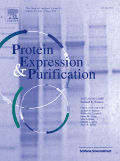
GLYCOCONJUGATE JOURNAL
Scope & Guideline
Unveiling the Complexities of Cellular Interactions
Introduction
Aims and Scopes
- Glycobiology and Disease Mechanisms:
Research exploring the roles of glycoconjugates in various diseases, including cancer, neurodegeneration, and metabolic disorders, highlighting their potential as biomarkers and therapeutic targets. - Glycoconjugate Synthesis and Characterization:
Studies focused on the chemical synthesis, enzymatic modifications, and structural characterization of glycoconjugates, providing insights into their functional properties and applications. - Lectin and Glycan Interactions:
Investigations into the interactions between lectins and glycans, which are crucial for understanding cell signaling, immune responses, and pathogen recognition. - Glycoconjugate Vaccines and Therapeutics:
Research related to the development of glycoconjugate vaccines and therapeutics, addressing their design, immunogenicity, and clinical applications in infectious diseases and cancer. - Glycan Profiling and Analytical Techniques:
Advancements in analytical methods for glycan profiling, including mass spectrometry and chromatography, to enhance the understanding of glycosylation patterns in health and disease.
Trending and Emerging
- Glycans in Cancer Immunology:
There is an increasing focus on the role of glycans in cancer immunology, particularly in understanding how glycosylation affects tumor immune evasion and therapy resistance, highlighting glycans as potential targets for immunotherapy. - Therapeutic Applications of Glycans:
Research exploring the therapeutic applications of glycans, including their use in drug delivery systems and as therapeutic agents, is gaining traction, showcasing the translational potential of glycoconjugate research. - Microbiome-Glycan Interactions:
Emerging studies are investigating the interactions between gut microbiota and glycans, with implications for understanding metabolic health, immunity, and disease, reflecting a holistic view of glycan functions in human health. - Advanced Glycoconjugate Vaccines:
The development of novel glycoconjugate vaccines, particularly in response to infectious diseases like COVID-19, is trending, emphasizing the importance of glycoconjugates in vaccine design and immune response. - Glycobiology in Neurodegenerative Diseases:
Research linking glycobiology to neurodegenerative diseases, including the role of glycans in neuroinflammation and neuroprotection, is emerging as a significant area of interest, underscoring the relevance of glycoconjugates in brain health.
Declining or Waning
- Traditional Glycobiology Studies:
There is a noticeable decrease in publications focusing solely on classical glycobiology topics without integrative approaches, as researchers increasingly explore interdisciplinary themes that combine glycobiology with other biological sciences. - Basic Enzymatic Functions of Glycosyltransferases:
Research dedicated to the basic enzymatic functions of glycosyltransferases seems to be waning, possibly due to a shift towards more applied research that investigates their roles in complex biological systems rather than isolated enzymatic activities. - Static Glycan Structure Analyses:
Studies that primarily focus on the static structural analysis of glycans without functional or dynamic context are becoming less frequent, indicating a trend towards understanding glycan behavior in live systems. - Glycoconjugates in Non-Medical Applications:
Research on glycoconjugates in areas outside of medical applications, such as agriculture or environmental studies, appears to be less frequent, which may reflect a narrowing of the journal's focus towards health-related research.
Similar Journals

BIOSCIENCE REPORTS
Your Gateway to Cutting-Edge Scientific DiscoveriesBIOSCIENCE REPORTS, published by Portland Press Ltd, is a prestigious journal dedicated to advancing the fields of biochemistry, biophysics, cell biology, and molecular biology. Founded in 1981, the journal has established itself as a vital resource for researchers and professionals, boasting a significant impact factor and high rankings within its categories, including Q2 in Biochemistry and Q1 in Biophysics as of 2023. The journal’s commitment to high-quality, peer-reviewed research ensures that it remains an influential platform for the dissemination of cutting-edge scientific findings. While it operates under a traditional subscription model, it offers various access options to accommodate the needs of the scientific community. With ongoing publication through 2024, BIOSCIENCE REPORTS continues to play a crucial role in shaping discussions in the life sciences and fostering innovative research in biology.

Cell and Bioscience
Fostering Innovation in Biochemistry and GeneticsCell and Bioscience is a prestigious open-access journal published by BMC that has been at the forefront of biochemistry, genetics, and molecular biology since its inception in 2011. With an impressive impact factor, this journal has established itself as a vital resource for researchers and professionals in these rapidly advancing fields, reflecting its high ranking of #29 out of 221 in the Scopus classification and placing it in the 87th percentile. Based in the United Kingdom, Cell and Bioscience aims to foster innovation and dissemination of research findings addressing critical biological questions through rigorous peer-reviewed articles and inter-disciplinary approaches. The journal's open-access model ensures unrestricted access to transformative research, promoting collaboration and knowledge sharing among academics, students, and practitioners worldwide. With a commitment to maintaining excellence in the field, Cell and Bioscience provides an essential platform for those looking to contribute to the evolving landscape of biosciences.

FEBS Open Bio
Nurturing collaboration in the evolving landscape of biosciences.FEBS Open Bio is a leading open-access journal published by Wiley, dedicated to advancing our understanding of biochemistry, genetics, and molecular biology. Since its inception in 2011, this journal has provided a robust platform for researchers to share their findings with a wider audience, ensuring the dissemination of high-quality scientific knowledge. With an impact factor reflecting its stature in its field, FEBS Open Bio is ranked #77 out of 221 in general biochemistry, genetics, and molecular biology, placing it in the 65th percentile among its peers. This journal serves as an essential resource for professionals, researchers, and students alike, fostering collaboration and innovation within the scientific community. The commitment to open access not only enhances visibility but also promotes transparency in research, making it a vital contributor to the ongoing dialogue in biochemical and molecular biological sciences. For those looking to stay at the forefront of research developments, FEBS Open Bio is a key publication addressing the latest trends and discoveries in the field.

Genes & Diseases
Unlocking the secrets of genes to combat diseases.Genes & Diseases, published by KEAI PUBLISHING LTD, is a premier open-access journal dedicated to advancing the fields of genetics, biochemistry, and molecular biology. Established in 2014 and headquartered in Beijing, China, this journal has quickly risen to prominence, securing a place in the prestigious Q1 quartile in Biochemistry and Genetics (clinical), as well as Q2 in Cell Biology and Q1 in Molecular Biology as of 2023. With a commitment to disseminating cutting-edge research, Genes & Diseases serves as a critical platform for researchers, professionals, and students alike, ensuring that high-quality scientific work is openly accessible to the global community. The journal's exceptional impact is underscored by its selective Scopus rankings, which reflect its influence and relevance in key scientific domains, making it an essential resource for those exploring the intersections of genetics and disease pathology.

BIOLOGY OF THE CELL
Elevating the standards of cellular research and publication.BIOLOGY OF THE CELL is a prominent academic journal published by Wiley, dedicated to advancing the field of cellular biology through the dissemination of innovative research and insights. With its ISSN (0248-4900) and E-ISSN (1768-322X), this journal has been a vital resource since its inception in 1981 and is set to continue its scholarly contributions until 2024. Positioned within the Q3 quartile in Cell Biology and Q2 in Medicine (miscellaneous) as of 2023, BIOLOGY OF THE CELL is recognized for its rigorous peer-review process and its commitment to high-quality publication in critical areas such as biochemistry, genetics, and molecular biology. Although the journal does not currently offer open access options, it remains accessible through the Wiley platform, ensuring that researchers, professionals, and students can benefit from its rich repository of knowledge. By linking fundamental cellular processes with broader medical implications, this journal serves as a critical platform for fostering dialogue and innovation in cellular research, making it an essential read for anyone engaged in the life sciences.

CELLULAR & MOLECULAR BIOLOGY LETTERS
Advancing the Frontiers of Cellular and Molecular ScienceCELLULAR & MOLECULAR BIOLOGY LETTERS, published by BMC, is a premier open-access journal dedicated to disseminating high-quality research in the fields of Biochemistry, Cell Biology, and Molecular Biology. Established in 1996, the journal has emerged as a leader in its domain, boasting an impressive Q1 ranking across three critical categories as of 2023, reflecting its significant impact within the scientific community. With an ISSN of 1425-8153 and an E-ISSN of 1689-1392, it offers accessible research findings to a global audience, having been open access since 2013. Situated in the United Kingdom, at CAMPUS, 4 CRINAN ST, LONDON N1 9XW, the journal continues to serve as a vital resource for researchers, professionals, and students, contributing to advancements in the understanding of cellular and molecular processes. By providing a platform for original research, reviews, and short communications, CELLULAR & MOLECULAR BIOLOGY LETTERS plays a crucial role in fostering dialogue and collaboration within the scientific community.

CELLULAR AND MOLECULAR BIOLOGY
Unveiling the Secrets of Biochemical ProcessesCellular and Molecular Biology is a prominent academic journal published by C M B ASSOC, specializing in the dynamic fields of cellular and molecular biology. Established in 1977, this journal has consistently aimed to disseminate groundbreaking research that contributes to our understanding of biochemical processes, cell dynamics, and molecular mechanisms governing life. With its ISSN 0145-5680 and E-ISSN 1165-158X, the journal plays a vital role in the exchange of innovative ideas, evidenced by its coverage of research from 1977 to 2024. Although currently categorized in the Q4 quartile for major disciplines such as Biochemistry and Cell Biology, it is dedicated to fostering the development of the field by welcoming submissions that challenge the conventional understanding and lead to novel insights. Researchers and academics looking to contribute to or stay updated in the rapidly evolving landscape of molecular biology will find this journal a valuable resource for connecting with a global community of scientists.

MOLECULAR AND CELLULAR BIOCHEMISTRY
Connecting Molecular Insights to Clinical ApplicationsMOLECULAR AND CELLULAR BIOCHEMISTRY, an esteemed journal published by SPRINGER, serves as a prominent platform in the fields of biochemistry and molecular biology. With a history of dissemination since 1973, this journal has made significant contributions to the understanding of biochemical processes at the molecular level. The MOLECULAR AND CELLULAR BIOCHEMISTRY journal focuses on a myriad of topics including but not limited to cellular biochemistry, clinical biochemistry, and interdisciplinary approaches in medicine, boasting a commendable categorization in the 2023 Scopus ranks where it falls under Q3 in Cell Biology, Q2 in Clinical Biochemistry, Q1 in Medicine (miscellaneous), and Q2 in Molecular Biology. Although the journal is not open access, it provides access options through institutional subscriptions, making valuable research accessible to a wider audience. With its rigorous peer-review process and high impact within the scientific community, this journal aims to advance knowledge and stimulate exploration in biochemical research, making it essential reading for researchers, professionals, and students alike.

JOURNAL OF DERMATOLOGICAL SCIENCE
Exploring Innovations in DermatologyThe Journal of Dermatological Science is a premier peer-reviewed publication dedicated to advancing knowledge in the field of dermatology, biochemistry, and molecular biology. Established in 1990 and published by Elsevier Ireland Ltd, this esteemed journal has consistently achieved high academic recognition, securing a Q1 ranking in Dermatology and a Q2 ranking in both Biochemistry and Molecular Biology as of 2023. With a notable impact factor and a Scopus rank that places it within the top tier of dermatology journals globally, it serves as a critical platform for researchers, clinicians, and academicians to disseminate their findings and foster innovation in skin health and disease management. Although the journal is not open access, it provides essential insights into cutting-edge research, clinical practices, and molecular mechanisms underlying dermatological conditions. The Journal of Dermatological Science is not only a vital resource for high-quality articles but also a driving force in shaping the future landscape of dermatological research.

PROTEIN EXPRESSION AND PURIFICATION
Advancing Techniques in Protein Expression and PurificationPROTEIN EXPRESSION AND PURIFICATION, published by Academic Press Inc. Elsevier Science, is a premier journal in the field of biotechnology. With its ISSN 1046-5928 and E-ISSN 1096-0279, the journal has been a vital source of knowledge since its inception in 1990 and continues to provide high-quality research up to 2025. Though categorized in the third quartile (Q3) for 2023 within its scope of biochemistry, genetics, and molecular biology, it serves as a valuable platform for scientists and researchers focusing on the latest advancements in protein expression methodologies and purification techniques. The journal enjoys a respectable Scopus rank of 177 out of 311 in its category, representing a 43rd percentile position that underscores its impact in the research community. While not an Open Access journal, it offers a wealth of insights that can significantly enhance one's understanding of protein biochemistry, making it a must-read for professionals and students alike engaged in this dynamic field.